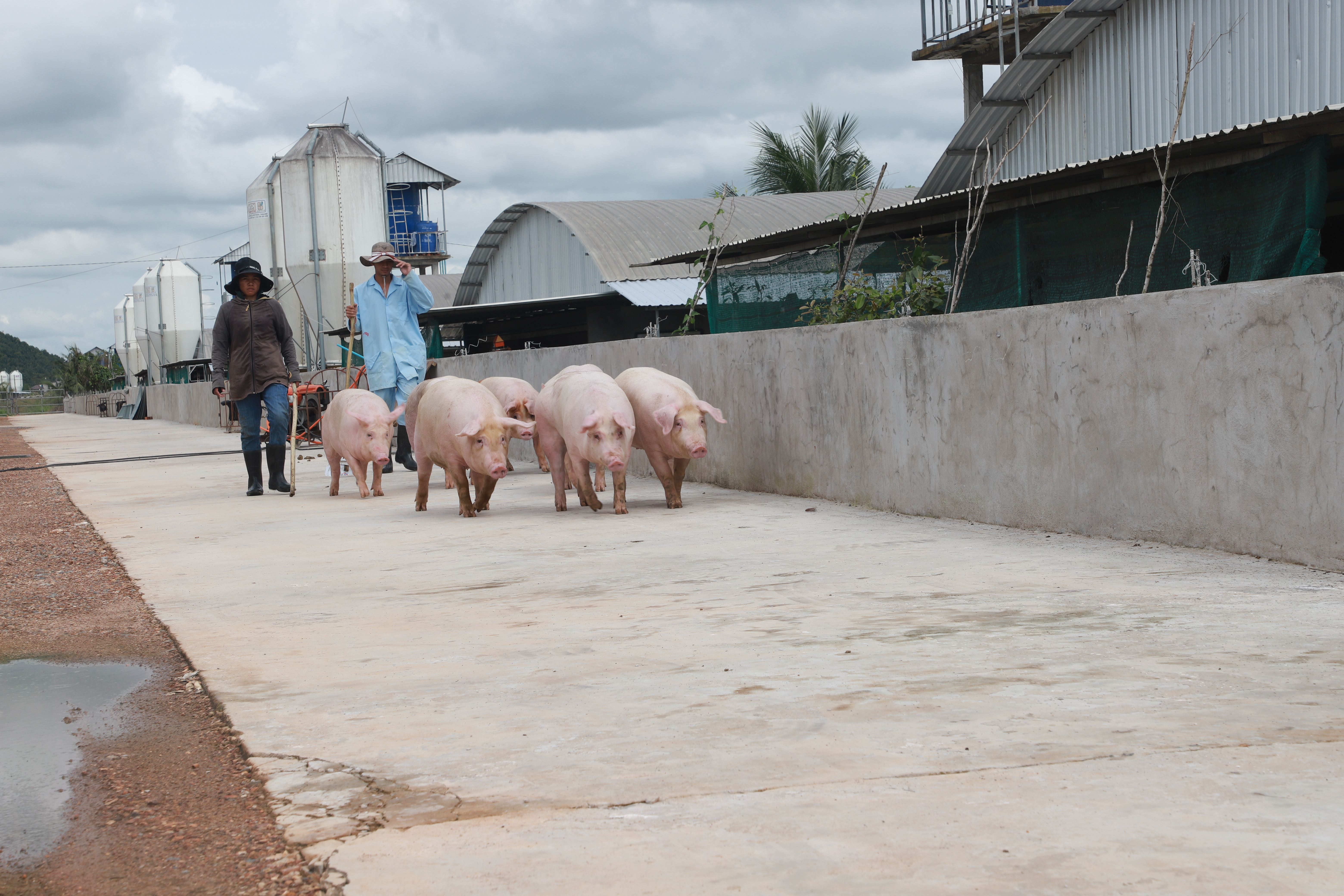Control and management of African swine fever
21/12/2022 , Bangkok

©FAO/Yen Heng
African swine fever (ASF) is a fatal disease of domestic pigs and wild boars of all breeds and ages with no effective vaccine or treatment. To date, the virus has affected pigs in 17 out of 42 Member Nations across the region, threatening the food security and livelihoods of millions of households that rely on pig farming. At least 60 percent of the global pig production is concentrated in East and Southeast Asia, with the majority of pigs kept in low biosecurity smallholder farms with minimal resilience to disease incursion.
FAO’s Emergency Centre for Transboundary Animal Diseases (ECTAD) recognized that increasing awareness and strengthening ASF control and recovery for smallholder farmers is paramount. In 2022, a series of practical guidelines on ASF control in the Asia context for smallholder pig farmers have been designed and developed. The guidelines enable veterinary authorities and frontline animal health workers to respond to ASF in smallholder settings. The guidelines cover the crucial aspects of disease control, including ASF monitoring and surveillance, culling and disposal of pigs in an ASF outbreak, farm biosecurity, slaughtering and restocking, and clean chain approach for ASF in smallholder settings.
FAO ECTAD implemented a community intervention pilot in the Philippines to mitigate the risks of ASF, working with 20 smallholder farms to co-create biosecurity interventions and providing training on good biosecurity practices. As a result, the communities improved their awareness of ASF, adopted good biosecurity practices, and installed and maintained infrastructure upgrades. Pig farmers in the pilot community, the majority of whom were women, are now better prepared to control and prevent ASF. FAO will explore opportunities to expand the co-created community interventions initiative to other countries and communities, to support smallholder farmers to reduce their risk from and improve their resilience to, ASF outbreaks.
